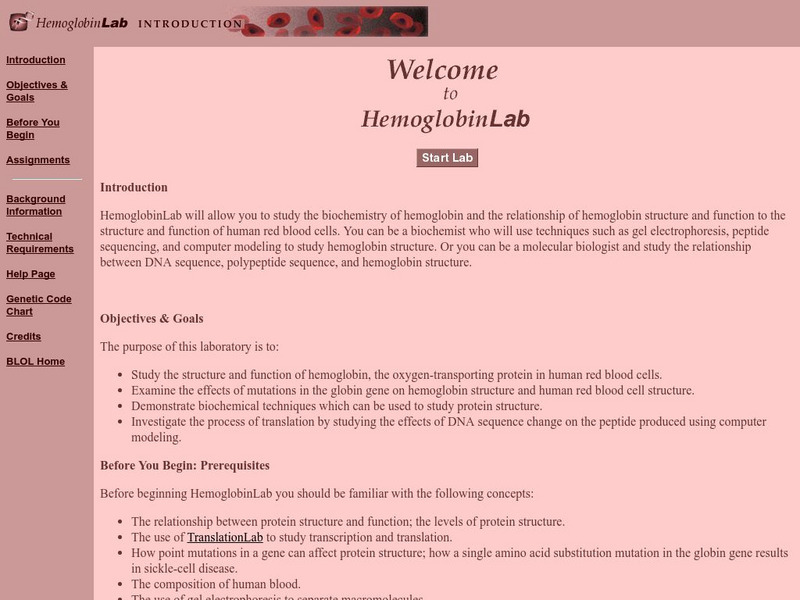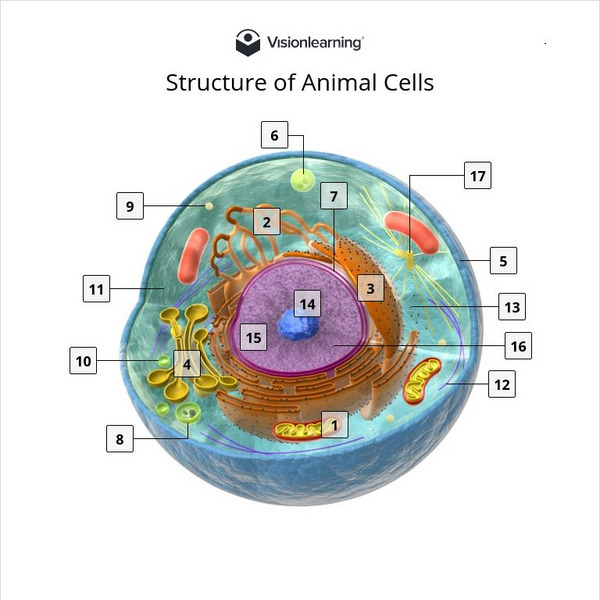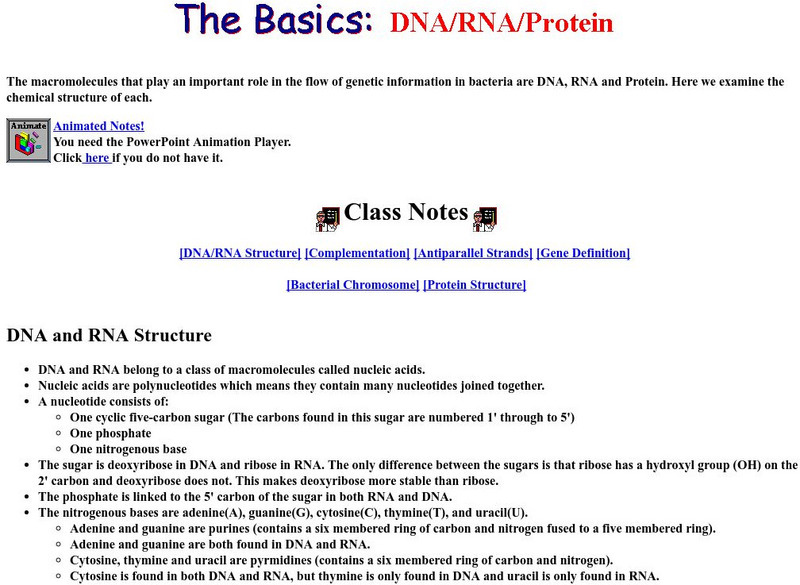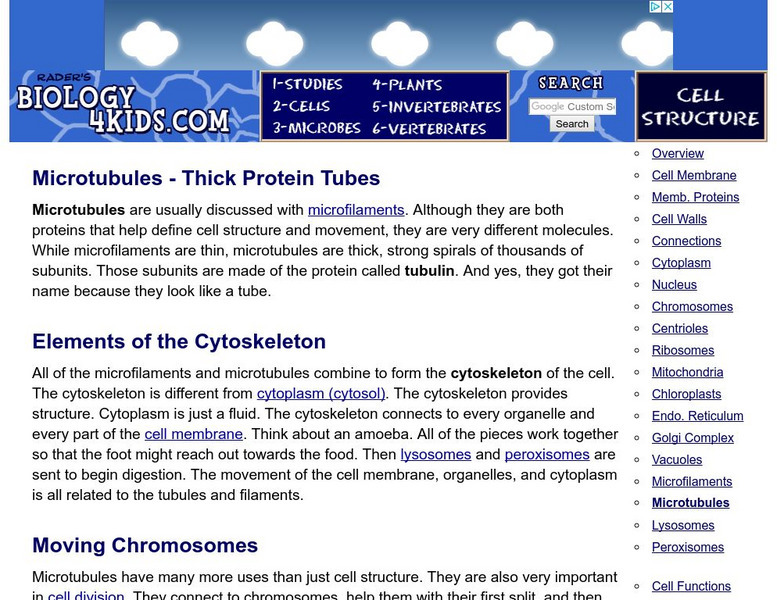Hi, what do you want to do?
Other
California State University: Biology Labs Online: Hemoglobin Lab
A set of virtual experiment assignments where students investigate the biochemistry of hemoglobin and the role it plays in the functioning of human red blood cells. Includes background information, glossary, online notebook, and...
Open Curriculum
Open Curriculum: The Skeletal System
After studying this article, students will be able to identify the functions and structure of bones, types of bones, bone development, parts of bones, types of joints, and bone disorders.
TED Talks
Ted: Ted Ed: What Does the Liver Do?
There's a factory inside you that weighs about 1.4 kilograms and runs for 24 hours a day. It's your liver: the heaviest organ in your body, which simultaneously acts as a storehouse, a manufacturing hub, and a processing plant. This...
OpenStax
Open Stax: Anatomy and Physiology: Types of Tissues
The term tissue is used to describe a group of cells found together in the body. Although there are many types of cells in the human body, they are organized into four broad categories of tissues: epithelial, connective, muscle, and...
TED Talks
Ted: Ted Ed: How We See Color
There are three types of color receptors in your eye: red, green and blue. But how do we see the amazing kaleidoscope of other colors that make up our world? The following learning module explains how humans can see everything from...
Khan Academy
Khan Academy: Passive Transport & Active Transport Across Cell Membrane Article
The cell membrane is one of the great multi-taskers of biology. It provides structure for the cell, protects cytosolic contents from the environment, and allows cells to act as specialized units. Learn how the membrane functions to...
CK-12 Foundation
Ck 12: Biology: Human Egg Cells
[Free Registration/Login may be required to access all resource tools.] Describes how eggs are produced.
CommonLit
Common Lit: "Let's See What You're Made Of" by Bird Brain Science
This informational, scientific text explains how cells, the smallest unit of a living organism, make up every living thing in the world. As you read, take notes on the comparisons used in the text to explain how cells work. [Free account...
BiologyWise
Biology Wise: Facts About Chloroplast
Explains how chloroplasts evolved into their present form, how photosynthesis takes place in them, where they are found in plants, physical characteristics, and other functions they perform.
PBS
Pbs Teachers: Scientific American: Never Say Die: How to Make a Nose
Investigate breakthroughs in stem cell research, and explore the structure and function of a DNA molecule. Create a model of a DNA from tagboard.
National Health Museum
Access Excellence: Using Bubbles to Explore Cell Membranes
An inquiry type lab activity that simulates cell membrane structure and function. This activity can be used in any Life Science or Biology classroom.
BiologyWise
Biology Wise: Tips on How to Make a 3 D Plant Cell Model
Describes the steps in how to make a model of a plant cell using clay and simple materials found at home. Suggestions for variations are also given.
City University of New York
The World of Cells: Golgi Apparatus
A very brief explanation of the structure and function of this organelle.
Vision Learning
Visionlearning: Structure of Animal Cells
Interactive illustration displays the organelles of an animal cell and their functions.
CK-12 Foundation
Ck 12: Life Science: 11.41 Nerve Impulse
Understand the structure and function of a nerve cell, and how messages are transmitted throughout the human body.
BiologyWise
Biology Wise: Functions of a Centrosome and Its Role in Cell Division
Discusses the discovery of centrosomes, their important role in mitosis in animal cells, and their other functions.
BiologyWise
Biology Wise: Functions of Vesicles
Describes the characteristics of vesicles and the functions they perform in a cell based on which type they are.
University of Hamburg
University of Hamburg: The Cell Wall
This site provides a description of primary and secondary cell wall. Includes an image of cell wall structure.
BiologyWise
Biology Wise: Peripheral and Integral Membrane Proteins
Discusses the structure of a cell membrane, the role of membrane proteins, and the differences between integral membrane proteins and peripheral membrane proteins as regards to their functions, location, and relationship with the...
BiologyWise
Biology Wise: The Smooth Endoplasmic Reticulum and Its Functions
The endoplasmic reticulum is found in eukaryotic cells. The characteristics and functions of the smooth endoplasmic reticulum are described and it is then compared with the rough endoplasmic reticulum.
ClassFlow
Class Flow: Plant and Animal Cells
[Free Registration/Login Required] This flipchart introduces students to the plant and animal cell.
Cells Alive
Cells Alive:organelle Crossword #2
A crossword to help review the terms and definitions associated with organelles.
Other
Acadia University: Structure of Dna and Rna
This site from the Acadia University provides the basic structure of DNA and RNA and a decent compare/contrast between the two.
Biology 4 kids
Biology4 Kids: Microtubules Thick Protein Tubes
A short, informational article which explains the structure and function of microtubules inside a cell.



















